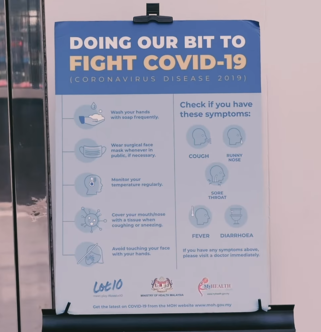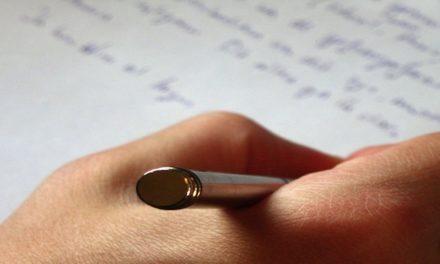
Wikimedia Commons/可恩Ke En
Despite being vaccinated and boosted, wearing my mask religiously and testing before seeing anyone outside my pod, I caught COVID-19 last January. After six days in the Emory Conference Center Hotel with body aches, a fever and shortness of breath, I earned my badge of 90-day natural immunity. Although the University has just lifted its indoor mask mandate, I’m not sure I’m ready to drop the mask.
While science rejects the outlandish claim that masking does not help prevent the spread COVID-19, it rings somewhat true for those of us whose odds of reinfection are slim. But even though I’m in the clear, I feel helpless knowing there is so little I can do to help in this global disaster, and I feel obligated to continue to do my small part. So, I mask up.
Even if I decide I’m ready, letting go of my mask will be a process. Over the past two years, wearing a mask has become a habit and a safety blanket. Although my days of masking outdoors are long gone, I still find myself instinctively donning my face covering as I get up from studying on the quad and forgetting to take it off as I exit the dining hall. Anxiety about the appearance of the lower half of my face is echoed by Tik Toks posted by students across the nation joking about “maskfishing” and exposing their acne to peers. As much as I hate mask fuzz itching my nose during a test and having to leave class to take a sip of water, it’s difficult to abruptly give up a habit that is so deeply ingrained.
Selfishly, I am also concerned about appearing as someone who doesn’t care about public health or the well-being of immunocompromised people. As someone with many immunocompromised loved ones and family members who have died because of the virus, I have not taken COVID-19 precautions lightly. Though it’s unlikely I can spread the virus regardless of my masking, it can do no harm and it’s hard to shake behaviors developed over two years of doing everything possible to avoid getting others sick.
I dread the guilt I know I’ll feel as I walk maskless through the library past people still masked-up, not knowing who has a medical condition that could make COVID-19 fatal. I wonder if others will share this guilt, or if their excitement will override any second thoughts. Early pandemic solidarity has wavered and far too many have reached an apparent quota on empathy and caring for human lives.
Those who aren’t immune will have to accept the possibility that they could be transmitting the virus to their favorite 70-year-old professor or chronically ill classmate. Going maskless is a privilege, as is not having to worry about the myriad of possible complications and long-term effects of the virus. I worry that not wearing a mask sends the message that I prioritize my comfort over the health — even lives — of my community.
I don’t blame people for being eager to return to a sense of normalcy. I’m excited too, but it’s naive to pretend that the pandemic is behind us. I’m worried for the people whose experiences with COVID-19 will not be as lucky as mine. To my classmates, I urge you to look beyond your own comforts to take into consideration the people that the Emory administration left behind.
Ada Demling (25C) is from Amherst, Massachusetts.
Ada Demling (25C) is from Amherst, Massachusetts.



